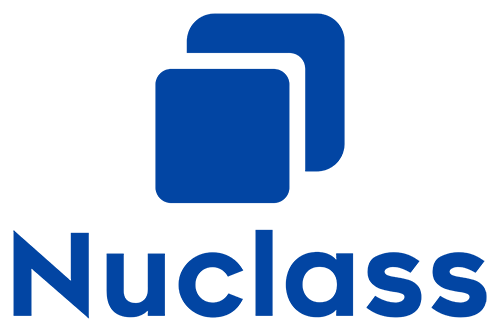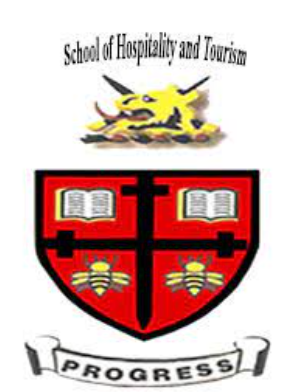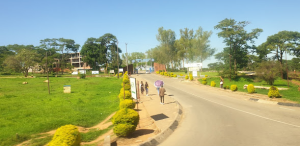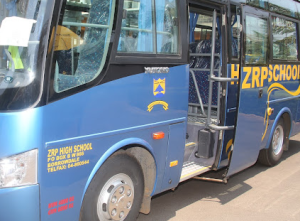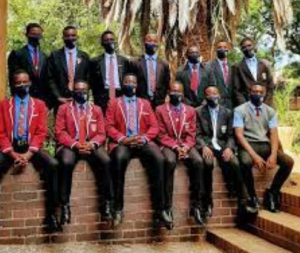The Essentials
Type of Institution: College
Fees per Semester: US$150.00 to US$300.00
Address: PO Box AC 410, Bulawayo, Zimbabwe.
Phone Number: +263-29-2258442
Training Manager: Mr. C Chikwira
Number of students: 500+
Website: https://schoto.ac.zw/
Email: info@schoto.ac.zw
Table Of Contents
- Overview
- Contact Details
- Address
- Location
- School Fees
- Courses & Programs
- Vacancies and Entry Requirements
- Logo
- Notable Alumni
- Pros and Cons
- Author’s Review
Overview
The School of Hospitality & Tourism focuses on providing students with the skills and knowledge necessary for successful careers in the hospitality and tourism industries. It combines practical training with theoretical education to prepare students for a range of roles in these dynamic sectors.
Core Areas:
Hospitality Operations: Front office management, housekeeping, food and beverage service.
Tourism Management: Tour guiding, tourism policy and planning, sustainable tourism practices.
Business Skills: Management principles, marketing strategies, financial management.
Customer Service: Emphasis on delivering exceptional service and managing guest relations.
Practical Training
Hands-on experience is a key component of the programs. Students often participate in:
Internships: Working in hotels, restaurants, travel agencies, and tourism boards.
Simulations: Training in simulated hospitality environments or management scenarios.
Field Trips: Visits to tourism destinations and industry events to gain real-world insights.
Facilities
Training Kitchens and Labs: Equipped with modern culinary tools and equipment.
Mock Hotel Rooms: For practicing housekeeping and front desk operations.
Computer Labs: For learning reservation systems, business management software, and digital marketing tools.
Career Opportunities
Graduates from the School of Hospitality & Tourism can pursue various career paths, such as:
Hotel Management: Roles in hotel operations, guest services, and management.
Tourism Services: Jobs in travel agencies, tour operators, and destination marketing organizations.
Event Planning: Careers in organizing and managing events, conferences, and banquets.
Food and Beverage Management: Positions in restaurants, catering services, and food production.
Industry Connections
Schools typically have partnerships with industry leaders and organizations, providing students with networking opportunities, guest lectures, and industry insights.
Student Development
The programs often emphasize the development of soft skills such as communication, leadership, and problem-solving, crucial for success in hospitality and tourism.
School of Hospitality & Tourism Contact Details
You can contact School of Hospitality & Tourism via their landline, email or you can visit their website for further contact details.
Phone Number: +263-29-2258442
Website: https://schoto.ac.zw/
Email: info@schoto.ac.zw
School of Hospitality & Tourism Address
PO Box AC 410, Bulawayo, Zimbabwe.
School of Hospitality & Tourism Location
School of Hospitality & Tourism is located in both Harare and Bulawayo. In Bulawayo it is situated in the CBD on 12th Avenue and Park road then in Harare its situated in the surburb of Glen Lorne in the north east of the city.
School of Hospitality & Tourism Fees
Umaa Institute Zimbabwe’s fees is currently standing at US$150.00 to US$300.00 per semester depending on the program you are studying and the level of degree you are studying. Please contact the institution or visit them to get the latest fees structure as it can change at any term or semester.
School of Hospitality & Tourism Courses & Programs
Diploma Programs:
Diploma in Hospitality Management: Focuses on hotel operations, food and beverage management, housekeeping, and customer service.
Diploma in Tourism Management: Covers destination marketing, tourism policy, travel agency operations, and tour guiding.
Diploma in Culinary Arts: Emphasizes practical skills in cooking, kitchen management, and food production.
Certificate Programs:
Certificate in Food and Beverage Service: Training in restaurant service, bartending, and banquet management.
Certificate in Travel and Tourism: Introductory program covering basic principles of tourism, customer service, and travel planning.
Certificate in Event Management: Focuses on planning and coordinating events, including weddings, conferences, and corporate events.
Advanced Diploma Programs:
Advanced Diploma in Hospitality Management: Provides deeper insight into hospitality business management, finance, and strategic operations.
Advanced Diploma in Tourism Development: Focuses on sustainable tourism practices, eco-tourism, and tourism planning and policy.
Specialty Courses:
Culinary Specializations: Advanced training in baking, pastry arts, or international cuisine.
Hotel Management and Operations: Focus on the management of hotel services, including room division, reservations, and guest relations.
Tourism Marketing: Training on promoting destinations, using digital marketing tools, and handling travel agency functions.
Sustainable Tourism Practices: Study of eco-friendly tourism development, green hospitality initiatives, and cultural heritage conservation.
School of Hospitality & Tourism Logo
Below is the logo of School of Hospitality & Tourism with excellent quality and it is available to download in PNG (transparent file) JPEG and PDF.
School of Hospitality & Tourism Pros and Cons
Pros
Industry-Relevant Training: The school provides specialized training in hospitality and tourism, offering programs that are tailored to meet the demands of these dynamic and growing sectors.
Practical Experience: Emphasis on hands-on training through internships, industry placements, and practical assignments helps students gain real-world experience and build a strong professional portfolio.
Experienced Faculty: The faculty often includes experienced professionals from the hospitality and tourism industries, providing students with valuable insights and industry connections.
Networking Opportunities: Strong industry connections and partnerships with hotels, travel agencies, and tourism organizations can facilitate valuable networking opportunities, internships, and job placements.
Diverse Program Offerings: The school typically offers a range of programs, including diplomas, degrees, and certificates, catering to various career paths within hospitality and tourism.
Global Career Opportunities: A qualification from a specialized school in hospitality and tourism can open doors to international career opportunities, given the global nature of the industry.
Focus on Customer Service: Training emphasizes the importance of customer service and client relations, which are crucial skills in the hospitality and tourism sectors.
Cons
Limited Program Scope: The school’s focus on hospitality and tourism means that it may not offer programs in other academic or professional fields, which could limit options for students with diverse interests.
Resource Limitations: Depending on the institution’s size and funding, there may be constraints related to modern facilities, technology, or equipment necessary for practical training.
Highly Competitive Field: The hospitality and tourism sectors are competitive, and graduates may face challenges in securing employment, particularly in oversaturated job markets.
Potentially High Cost: Specialized training programs, especially those that include practical placements and industry partnerships, may come with higher tuition fees and additional costs.
Variable Industry Standards: The quality and reputation of programs can vary between institutions, so it’s important for students to research the specific school’s accreditation and industry standing.
Less Emphasis on Theoretical Knowledge: The focus on practical training might mean that there is less emphasis on theoretical aspects of the subjects, which could impact a deeper understanding of the field.
Job Market Sensitivity: Careers in hospitality and tourism can be sensitive to economic fluctuations, which may impact job availability and stability in the sector.
Author's Review
The School of Hospitality & Tourism provides specialized education and training designed to prepare students for successful careers in the vibrant and dynamic fields of hospitality and tourism.
With a strong emphasis on practical experience, industry-relevant skills, and customer service, the school equips students with the knowledge and competencies needed to thrive in these sectors. Its experienced faculty and industry connections offer valuable networking opportunities and insights, enhancing students’ career prospects.
However, prospective students should consider certain limitations, such as the narrow program scope, potential resource constraints, and the competitive nature of the industry. Additionally, the cost of specialized programs and the sensitivity of the job market to economic fluctuations are factors to keep in mind.
In summary, the School of Hospitality & Tourism stands out for its focused and practical approach to education, making it a compelling choice for those passionate about pursuing careers in hospitality and tourism.
While it excels in offering targeted training and career opportunities, students should carefully evaluate how well the school aligns with their broader educational and career aspirations, considering both its strengths and potential drawbacks.
